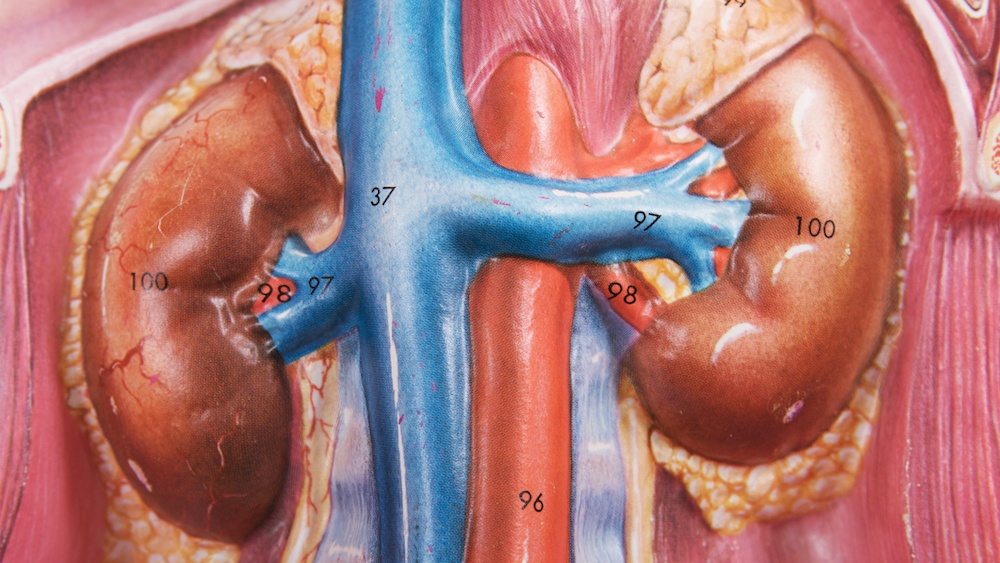This piece was submitted from a member of our enthusiastic community of readers. If you’re interested in sharing your opinion on any cultural, political or personal topic, create an account here and check out our how-to post to learn more.
With sleep still in my eyes I asked, “You are where, momma? Why?"
I had several questions for my rock, my best friend, my confidant, my mother, while she was trying to explain why she was in the hospital. As I worked my way down I-75, I could not help but pray everything was going to be OK with my mother. Once I arrived, the doctor explained to me that my mother's kidneys were functioning at 10%.
My question to him was, "How can we get her kidneys back to their normal working function?" The doctor stated that, unfortunately, it was irreversible. She would need to start dialysis as soon as possible. Her kidney failure was due to hypertension. He noted that the technical term is called End-Stage Renal Disease (ESRD). According to the Kidney Disease Statistics for the United States, ESRD is the final stage of Chronic Kidney Disease (CKD). It means the kidneys have stopped running well enough to live without dialysis or a kidney transplant. None of this was explained to my mother during any of her previous doctor visits. Before I could ask questions, the doctor left, like a thief in the night; we did not receive anything but a follow-up appointment with yet another doctor.
In 2008, when she was first diagnosed with ESRD, my mother was never offered an option of a transplant or different dialysis treatments. Unanswered questions exacerbated my frustration. How did we get to this point, the end-stage, for a preventable disease?
Teressa was an obese, 54-year-old Black woman with a history of high blood pressure. She was poor, had a high school education and lacked consistent, quality healthcare. I cannot help but wonder if there was a correlation between poverty, education level, gender, race and her treatment options for CKD. As reported by the National Kidney Foundation, Blacks are three times more likely to be diagnosed with kidney failure when compared to whites. The leading causes of kidney failure among African Americans are diabetes and high blood pressure.
While interviewing an intern, Mattingly, at a physician’s office, I found some thought-provoking information. She remembers a wealthy, educated, white man coming into the office for diagnosis. The doctor sat down with him and gave him all the information he needed relating to kidney dialysis/transplants. The physician also took the time to make sure the patient understood all the information. She shared with me that when the patient asked the doctor if he provided such detailed information to all his patients, the doctor replied that he only informs patients who are "educated." In other words, if a patient is uneducated, the physician decided for the patient. It is unethical and discriminatory to base the treatment of healthcare on intelligence, race and income.
According to the United Network for Organ Sharing (UNOS), 57% of people need kidney transplants. African Americans represent the highest group of people. In 2016, Blacks accounted for 30% of all organ transplants. Of that 30%, 33% were kidney transplants. These facts are even more staggering when you consider that African Americans only comprise 13% of the total population. Except for Japan, the United States possesses the highest dialysis usage in the world. Dialysis has become a profitable business within the United States. The cost of chronic kidney disease is roughly 49 billion dollars, so the government included Medicare programs to cover any patient who needed dialysis care.
United States Renal Data System (USRDS) states that for a patient to undergo dialysis treatment, it cost $88,000 a year. Within 12 months, one and four will die while on dialysis. My mother was the one out of the four who died while on dialysis. Dialysis care has one of the highest mortality rates. The two leading dialysis companies to run the market right now is Fresenius Medical Care and DaVita Healthcare Partners, as they control about 70% of the market. Fresenius settle a lawsuit for 250 million dollars because of the center prescribing GranuFlo and NaturalLyte. These two drugs have been linked to causing cardiac arrest in patients on dialysis and not informing them. DaVita has also been accused of not properly educate patients about kidney transplants being an option versus dialysis.
Dr. Martin Luther King, Jr. stated that “of all the forms of inequality, injustice in health care is the most shocking and inhumane.” The reality is that one size does not fit all; neither does race, money or education. It is the physician's legal duty to respect their Hippocratic Oath. The oath is supposed to remind doctors to remain ethical when treating their patients. The physician is to provide the patient with all the options related to treatment plans for dialysis and transplants, thereby increasing awareness and eliminating the mistreatment of uneducated patients. If we cannot trust the very people who took an oath in front of God, then who can we trust for our medical needs?
